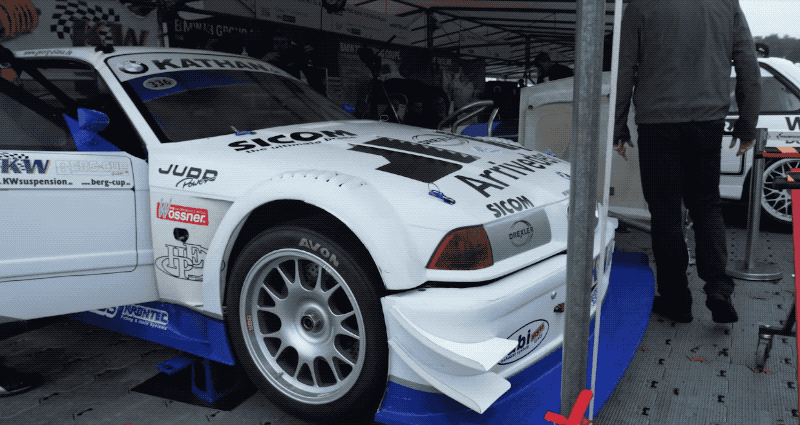Explaining The Internet's Loudest BMW
If you've ever fallen into an automotive YouTube hole, there's a good chance you know this car: Georg Plasa's Judd V8-powered BMW E36. It has ripped through the consciousness of all of us at least once, guaranteed. Now, you can get underneath the hood in video form to understand what it is, exactly, about this car that makes it so badass.
This high-revving naturally-aspirated Judd V8 is a rarity in a world growing more dominated by high-powered and high-performance engines. You'd think that fact would make this E36 fade into the background, given that it's become less popular. You would be wrong.
This particular engine was designed for LMP2 endurance racing and it has proved time and time again to kick ass, even in the hillclimb realm.
High Performance Academy got a good look at the car and is able to walk viewers through the mechanics of this beast, how this specific car has been so capable of absolutely crushing its competition time and time again.
Mainly, it comes down to three key components blended together in such a way as to make this car so brutal: horsepower, weight, and aero.
The 3.4-liter Judd V8 engine produces 560 horsepower and 11,200 RPM—odd numbers compared to the 800-plus horsepower cars this E36 has gone up against. It's the high RPM that gives this car its distinctive Formula One-like wail when it starts creeping up in speed.
When you combine that power with the low weight of this car (895 kg, or 1,973 lbs), you have a one-two punch that can kick the ass of anything it goes up against. Incredibly, this BMW has a full chassis and a roll cage while still preserving its low weight. If you've ever tried to reduce weight on a road-going car without completely firebombing the whole deal, you know how impressive Plasa's design is.
Finally, there's the aero, which produces a truly massive amount of downforce. Depending on the venue, hillclimb cars can run up to 211 mph; you need to make sure a low-weight car will stay sucked to the ground in cases like that.
The car in the video isn't entirely the original we all know and love. Plasa died in a hillclimb crash in 2011 while driving a BMW 1 Series that had used some of the E36's parts. Here's a quick history from Petrolicious regarding its recent evolution as a tribute to Plasa's legacy:
It was [Plasa's] previous E36-based racer that was his most recognizable. Having been partly cannibalized for the new build, the E36 was left parked up in his workshop. Not long after the accident, his family began receiving sales enquiries, both for the whole car and for its parts, but they didn't want it going into someone else's hands just to be repainted and reengineered. Which is where longtime friend and suspension man, Klaus Wohlfarth, founder of KW Suspensions, stepped up to buy it from the family. Not only did he make the kind offer to match the highest bid that had been made, his only intention was to preserve the car for prosperity.
High Performance Academy runs through a ton of other specific details, especially regarding the evolution of the gearbox as time has passed, that have helped contribute to this car's well-loved reputation. You don't want to miss it.
